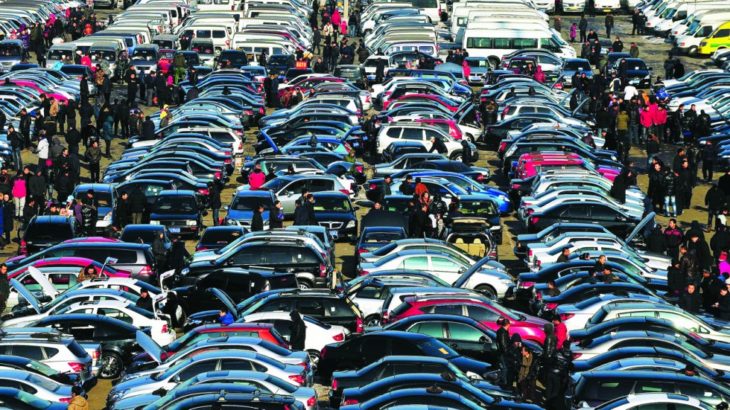
Many things can affect the resale value of a car, some positively and some negatively. If you are looking to trade in or privately sell your old wheels, you should pay attention when it comes to these factors. Know though that some are more obvious than others. In the case of the things that can adversely affect your car’s value, you face the decision of whether to do anything about them or not.
Whether it is scratched paintjob, damaged upholstery, or a missing brake light, the question is whether these are worth fixing from a financial standpoint.
Sometimes, you can end up paying less on the restoration than the extra you will make from it at the point of sale; other times, the whole restoration work can just be a drain on your finances for no appreciation in value that would make the whole thing worth doing. It is all a question of weighing up the cost of the restoration against the extra value it will add to the vehicle.
In the case of those unexpected things that may increase your car’s value, on the other hand, you should simply count yourself lucky! Sometimes car owners are not even aware that their car is packing more value than they initially thought, all on account of some unnoticed feature that happens to fetch quite a bit on today’s used car market.
Where You Sell Matters
So, whether you expect to make extra dollars on account of the easy-to-live with car extinguishers installed in the trunk, or you expect to make a loss on account of a broken wingmirror, a big deciding factor in how much your car ultimately fetches will be the precise way in which you sell it. Generally speaking, you can sell a car privately or through a used car dealership. Both have their advantages and disadvantages that are sure to affect the amount of money you ultimately get for your old car.
Dealerships
Selling your car to a used car dealership comes with a lot of advantages. For example, used car dealerships typically boast the kind of market access that means they can always find a buyer for your car (or at least someone willing to take the scrap parts). The reason they can do this is that a good dealership will typically be associated with a host of other dealerships across the region, or even the country, and they will have the market data to see where your car will fetch the best price. For the most part, they also have the resources to restore cars themselves for far cheaper than it would cost you or any private individual. This means they can usually get a car into a sellable state without too much trouble.
In practice, this means your chances of outright rejection are pretty low with a dealership. Indeed, they can sometimes even fetch a better price by selling the car in a location where it would be expected to sell for more. Dealerships do have their downsides though. It is much less likely that any special features of your car will significantly increase its value (because they typically have the resources to increase it themselves) and their rigid adherence to market data means there is much less room for negotiation with a dealership. You may find that a specific value-adding feature doesn’t add as much value as you had hoped.
Private Sale
With a private sale, much more falls to you and what you can do to shift your vehicle for the best price. Selling privately avoids the standardization of selling through a used car dealership, and it gives you much more opportunity to sing the praises of your vehicle and hopefully haggle the buyer up to profitable price. While there are obvious downsides that come with selling privately, doing so will allow you more freedom to push for those extra dollars by drawing attention to the value-adding features your vehicle may possess.
Of course, there are downsides here too. Chief among them is finding a buyer and then closing the deal. Of course, it depends a great deal on what type of vehicle you are selling, but there is simply more chance that you will not find a buyer or that you will be unable to finally close the deal. There is no guarantee of a fair sale with private selling. This is why many who try – and fail – in this approach ultimately give in and head to the dealership. Theoretically, however, you can actually make more money this way.
Unexpected Value-Increasing Factors
So, regardless of whether you are selling privately or through a dealership, what are the things that can hike the value of your car? The below, then, are the things that you should always draw attention to (especially when selling privately) as they could see your car going for more than you expected.
The Trim
The trim of a car refers to all the things that were added post-manufacture when you purchased it new. The trim can include an upgraded engine, better quality upholstery fabric (leather, for example), the transmission type, and extra features such as a sunroof or automatic climate control. If your car has any of these, extra value lies therein.
Extra Safety Features
Some safety features are universal, some are not. If you have any that fall into that latter camp, then this can increase your car’s value. Such features include automatic emergency breaking, automatic high beams, and rear cross traffic warnings.
New Floormats
Replacing floormats is not difficult, and it is something the new owner can easily do and for the same price. So how can they add value? Well, it is all a matter of first impressions and psychology. To successfully exploit new floormats, simply have them put in beforehand and they will create an impression of good condition that could help you sell your car for more.
Unexpected Value-Decreasing Features
So here’s the other side of the story. These are the things that you should watch out for – and potentially fix if you can.
Manual Transmission
If you’re selling a sports or a muscle car, then manual transmission can actually be a benefit. However, in most cases, buyers do not really want to be shifting gears, so a manual transmission will usually deduct value.
Paint Color
Unfortunately for those with eccentric tastes, a paint job in anything other than the traditional black, silver, and white will lead to a slower sale. If you are canny, you could still shift the car for the same value (it is difficult to argue a price down just on color, after all), but generally speaking, the sale will simply prove more difficult.
Performance Parts
This one is truly unexpected. Performance parts, like suspension upgrades or a supercharger kit, may seem like flashy accessories, but they could worry used car buyers about earlier wear and even higher upkeep costs. Be careful here.
Ultimately, a great deal depends on you when it comes time to sell your car. If you can take the heat of haggling and feel like your car genuinely has a lot to recommend it, then private selling may return a serious profit. But it is also important to recognize how every little detail could be affecting your car’s value, and perhaps then to decide on the easier dealership sale when upgrades or restorations simply seem like a waste of money.








